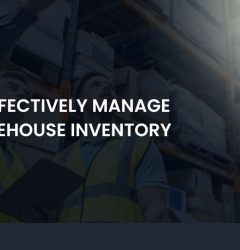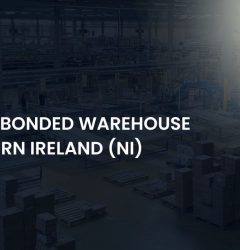27 Aug
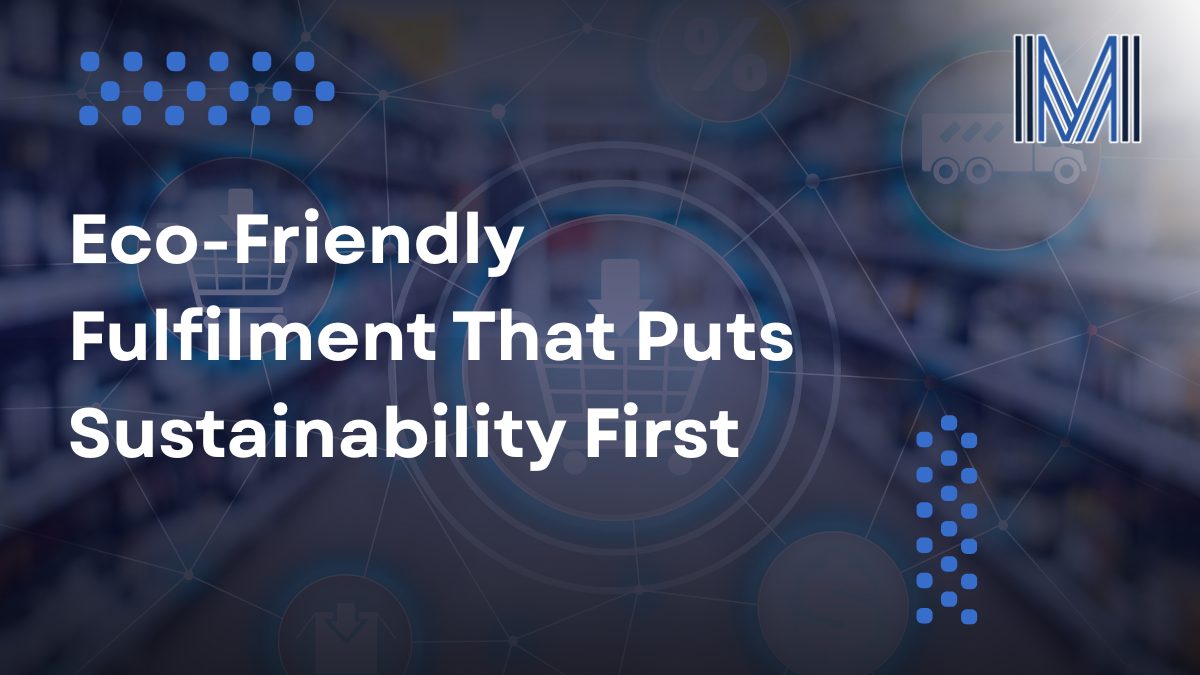
In today’s ecommerce landscape, sustainability in fulfilment and logistics has become just as important as speed and efficiency. Modern consumers are not only expecting fast delivery—they also want brands to take responsibility for their environmental impact. From reducing packaging waste to lowering carbon emissions in delivery, sustainable practices are now a decisive factor in where people choose to shop.
Research shows that over 60% of online shoppers prefer retailers with sustainable supply chain solutions (Shopify), and as McKinsey highlights: “A decade ago, reducing environmental impact was merely a ‘nice to have’ for organizations. Today… it’s now a necessity—as well as a genuine and enormous business opportunity” (McKinsey).
This shift means green logistics is no longer just a marketing angle—it’s a key competitive advantage. Ecommerce businesses that embrace eco-friendly fulfilment can strengthen customer loyalty, reduce waste, and future-proof their operations against tightening environmental regulations, all while appealing to an increasingly conscious consumer base.
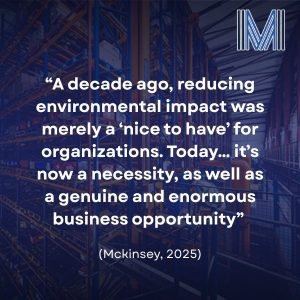
Why Traditional Fulfilment Is Unsustainable
While ecommerce has transformed the way businesses reach customers, traditional fulfilment and logistics practices come with a hidden cost: their environmental impact. From transportation emissions to packaging waste, outdated fulfilment models are putting both the planet and brand reputations at risk. Here’s why change is urgently needed:
1. High Carbon Emissions from Last-Mile Delivery
Transportation is one of the largest contributors to ecommerce’s carbon footprint. The last mile—the journey from warehouse to customer’s door—is particularly problematic, accounting for up to 53% of overall shipping emissions (World Economic Forum). With growing order volumes, this challenge is only intensifying.
2. Excess Packaging Waste
Many fulfilment operations still rely on oversized boxes, plastic fillers, and non-recyclable packaging. These materials end up in landfills, where they take decades—or even centuries—to decompose. Globally, over 80 million tonnes of packaging waste are generated annually from ecommerce shipments alone (Statista).
3. Inefficient Warehousing
Without smart inventory management, warehouses often face overstocking, expired goods, and unnecessary energy consumption. Not only does this drive up operating costs, but it also increases environmental strain through wasted resources and higher electricity usage for storage.
4. Consumer Pressure
Today’s shoppers are holding brands accountable. Studies show that 77% of consumers say a brand’s sustainability practices influence their buying decisions (Harvard Business Review). Failing to demonstrate eco-friendly operations risks damaging customer trust and loyalty.
5. Regulatory Pressure
Governments and regulatory bodies—particularly in the EU and UK—are tightening rules on packaging, carbon emissions, and supply chain transparency. Businesses that fail to adopt greener fulfilment practices risk fines, restrictions, and falling behind more sustainable competitors.
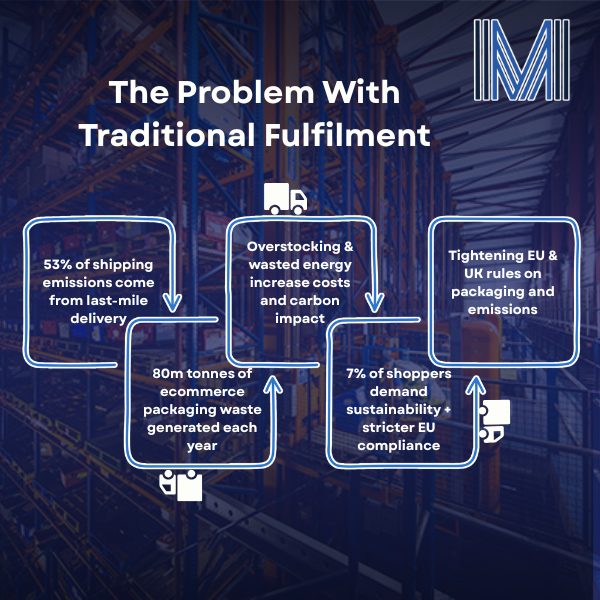
How Meteor Space Delivers Fulfilment Sustainability
While traditional fulfilment practices put increasing strain on the environment, there is a better way. At Meteor Space, we are committed to building a greener, more responsible logistics model that supports ecommerce growth without sacrificing the planet. By combining innovative operations with our advanced WMS system, Canary7, we help brands achieve efficiency and sustainability.
1. Reducing Last-Mile Emissions
We partner with eco-conscious carriers and optimise delivery routes to cut unnecessary mileage. By integrating AI-driven planning into Canary7, we help reduce the carbon footprint of last-mile logistics while maintaining speed and reliability.
2. Cutting Packaging Waste
Our fulfilment process prioritises right-sized packaging and recyclable materials to reduce waste. Smarter inventory management also lowers return volumes—one of the biggest drivers of packaging waste in ecommerce.
3. Energy-Efficient Warehousing
Meteor Space’s facilities are designed for efficiency, from automation that reduces excess energy usage to smarter stock control that prevents overproduction and waste. Canary7 enables real-time tracking of inventory, helping brands avoid costly overstocking.
4. Meeting Consumer and Regulatory Demands
We help businesses demonstrate transparency and meet EU and UK sustainability regulations. At the same time, we empower brands to showcase their eco-friendly operations to customers, strengthening trust and brand loyalty.
While you’re here, why not take a look inside our warehouse? Our advanced automated systems are designed to boost efficiency, cut energy waste, and support more sustainable fulfilment operations.
Partner With Meteor Space for Sustainable Fulfilment
Sustainability is no longer a “nice to have” in ecommerce—it’s a defining factor in long-term success. From reducing carbon emissions in last-mile delivery to cutting packaging waste and improving warehouse efficiency, sustainable fulfilment gives brands a clear advantage in a competitive market. It not only lowers environmental impact but also builds stronger customer trust and ensures compliance with evolving EU and UK regulations.
At Meteor Space, we’re proud to lead the way in eco-friendly logistics. With our advanced WMS system, Canary7, and our commitment to innovation, we help ecommerce businesses balance speed, cost-efficiency, and sustainability. Whether you’re looking to scale responsibly, improve operational visibility, or meet growing consumer demand for greener practices, our team is here to support you.
Ready to future-proof your fulfilment with sustainability at its core? Contact Meteor Space today and discover how we can help your brand grow while reducing its carbon footprint.
Author:
Claire Cox
Claire Cox is a Marketing Executive at Meteor Space, specialising in content creation and digital strategy for ecommerce and fulfilment solutions. She focuses on developing engaging, SEO-driven content that highlights industry insights and showcases how Meteor Space supports brands with scalable logistics.
UPDATED ON: 27/08/2025
FAQs
What does sustainable fulfilment mean in ecommerce?
Sustainable fulfilment focuses on reducing the environmental impact of logistics. This includes optimising delivery routes to lower emissions, using recyclable packaging, and running energy-efficient warehouses
Why is sustainability important in fulfilment?
Research shows that 77% of consumers say a brand’s sustainability practices influence their buying decisions. Eco-friendly operations not only reduce waste but also build long-term trust and loyalty with customers.
How does Meteor Space support sustainable fulfilment?
At Meteor Space, we combine eco-conscious practices with our advanced WMS system, Canary7. From smart inventory management that reduces overstocking to right-sized packaging and optimised delivery routes, we help brands scale while lowering their carbon footprint.
Is sustainable fulfilment more expensive?
Not necessarily. While eco-friendly packaging or technology may carry an upfront cost, sustainable practices often reduce long-term expenses by cutting waste, improving efficiency, and avoiding regulatory penalties.


